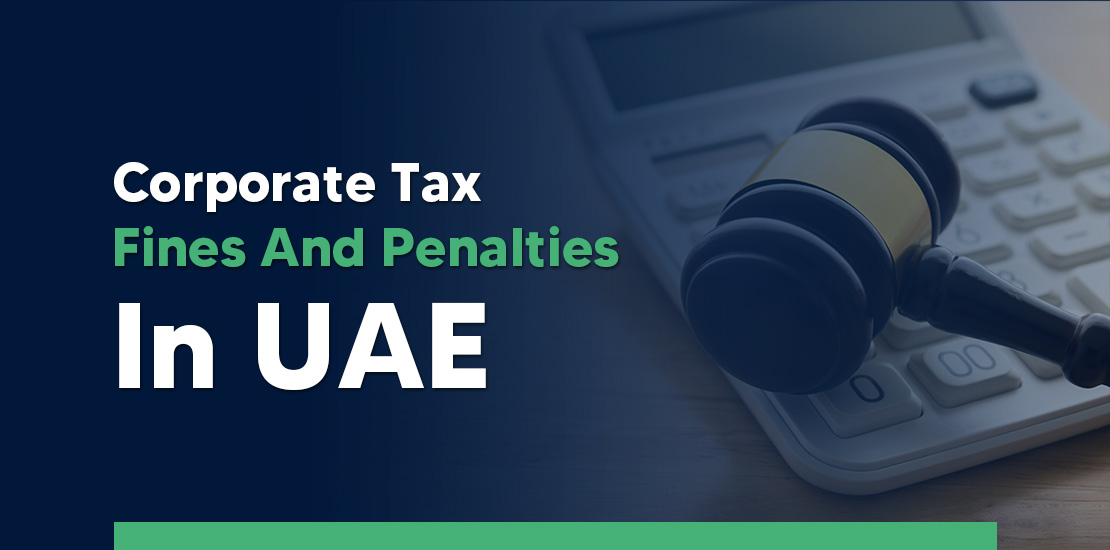Table of Contents
- Corporate Tax Registration UAE
- How to register corporate tax in UAE?
- Eligibility for Corporate Tax Registration in UAE and Applicable Rates
- Essential Documentation for UAE Corporate Tax Registration
- Exempt and Taxable Persons for UAE Corporate Tax
- Exclusions from Corporate Tax: What Falls Outside the Corporate Tax Scope?
- Understanding the Corporate Tax registration in UAE: Rates and Qualifications
- The Importance of Corporate Tax Assessment Before Registration
- Empower Your Business with Shuraa Tax
The introduction of corporate tax in the UAE is scheduled for June 1, 2023. According to the law, individuals and businesses subject to taxation will face a 9% corporate tax from their initial fiscal year starting on or after June 1, 2023. They must acquire a corporate tax registration number.
Since the initial announcement, businesses and tax experts have extensively deliberated on this development. This move positions the UAE as the fourth GCC nation to implement a federal business tax.
Incorporating a corporate tax registration number aligns with the UAE’s commitment to enhancing its status as a premier global hub for commerce and investment, furthering its strategic growth and transformation goals. Additionally, corporate tax deters unfavourable tax practices and ensures compliance with international standards for tax transparency.
Corporate Tax Registration UAE
As per FTA’s Federal Decree Law 47, every taxable entity, including Free Zone Persons, must register for Corporate Tax and obtain a Registration Number.
- The Federal Tax Authority explicitly requires exempt persons to register for Corporate Tax.
- Taxable persons must submit corporate tax returns within nine months of the end of the specified tax period.
- This deadline covers settling all Corporate Taxes owed for the respective Tax Period covered by the filed return.
- In cases of exclusion permitted by the Minister, a Taxable Person must adhere to a specific timeline and format to register for Corporate Tax with the Federal Tax Authority.
- The Authority mandates that Taxable Persons or Independent Partnerships register for Corporate Tax and acquire the Tax Registration Number.
- Corporate Tax registration with the Tax Authority should be promptly completed when an individual becomes a Taxable Person.
- Upon successful registration, entities are subject to a standard Corporate Tax rate of 9% on taxable income exceeding AED 375,000, with a 0% charge on taxable income up to AED 375,000.
How to register corporate tax in UAE?
- The Federal Tax Authority has introduced a pre-registration process for corporate tax on the EmaraTax platform.
- EmaraTax is an online portal consolidating tax-related tasks, including registrations, returns, refunds, deregistrations, and payments.
- The platform’s user-friendly interface facilitates easy VAT payments and corporate tax management.
- To get started, individuals can create an account on EmaraTax or migrate their existing FTA Account to the platform.
- Successful registration for corporate tax requires the submission of all necessary documents as outlined in the UAE corporate tax regulations.
- Utilising the EmaraTax Login guide simplifies the process of creating an account or transitioning an FTA Account, ensuring a smooth registration experience for corporate tax in the UAE.
Eligibility for Corporate Tax Registration in UAE and Applicable Rates
Businesses in the UAE are required to register for corporate tax, which is imposed on taxable income at the following rates:
- A corporate tax rate of 0% is applicable to taxable income up to AED 375,000, and this rate applies to all qualifying income generated by the person in the free zone.
- A 9% corporate tax rate is imposed on taxable income surpassing AED 375,000, and it applies to all non-qualifying income generated by the individual in the free zone.
- Multinational corporations falling under OECD Base Erosion and Profit-Sharing laws within Pillar 2 of the BEPS 2.0 framework, with combined worldwide revenues exceeding AED 3.15 billion, the Ministry of Finance announced that the UAE will not implement Pillar Two rules before 2025.
Essential Documentation for UAE Corporate Tax Registration
For Corporate Tax registration in the UAE, businesses must provide specific documents. The entire process is online, and the required documents include:
- Copy of the valid Trade License.
- Passport copies of the owners/partners/shareholders associated with the license (valid and unexpired).
- Emirates ID copies of the owners/partners/shareholders holding the license (valid and unexpired).
- Memorandum of Association (MOA) or Article of Association (AOA).
- Contact details of the person concerned, including mobile number and email address.
- Comprehensive company contact details, encompassing the complete address and P.O. Box.
- Information specifying the Corporate Tax Period.
Exempt and Taxable Persons for UAE Corporate Tax
Given their significance and contribution to the social fabric and economy of the UAE, several types of companies or organisations are exempt from corporate tax. So, these are referred to as Exempt Persons and consist of:
| Automatically Exempted | Government entities Government-controlled entities specified by the cabinet decisions |
| Exempted if notified to the Ministry of Finance (subject to certain conditions) | Extractive Business Non-Extractive Natural Resource Business |
| Exempt if listed in a cabinet decision | Qualifying Public Benefit Entities (PBE) |
| Exempt if applied to and approved by the Federal Tax Authority (subject to certain conditions) | Public or private pension and social security funds. Qualifying Investment Funds Wholly owned & controlled UAE subsidiaries of a government entity |
Government entities, government-controlled entities, and extractive and non-extractive natural resource businesses may be exempt from corporate tax filing, compliance, and registration requirements unless involved in taxable activities per the Corporate Tax Law.
Exclusions from Corporate Tax: What Falls Outside the Corporate Tax Scope?
- Individual Income Exemption:
Corporate tax does not apply to individual income unassociated with a trade or business in the UAE. This includes income from employment such as salary, real estate, interest income, share investments, and other personal income sources.
- Foreign Investors:
Foreign investors not engaged in business activities within the UAE are exempt from corporate tax obligations.
- Free Zone Businesses:
Businesses operating within free zones, provided they adhere to all regulatory criteria, will maintain corporate tax advantages.
- Capital Gains and Dividends:
Corporate tax does not apply to capital gains or dividends earned by UAE corporations or individuals from qualifying shareholdings.
- Intragroup Transactions:
Intragroup transactions meeting the criteria for tax grouping are not subject to corporate tax.
Understanding the Corporate Tax registration in UAE: Rates and Qualifications
- Corporate Tax Rate Overview:
Enterprises in the UAE must pay a fixed percentage of their net profit as corporation tax if the taxable profit (net) surpasses AED 375,000.
- Corporate Tax Rates for UAE Businesses and Taxable Persons:
– 0% for taxable income up to AED 375,000.
– 9% for taxable income exceeding AED 375,000.
- Corporate Tax Rates for Entities in Qualifying Free Zones:
– 0% on qualifying income.
– 9% on income other than qualifying income.
- Qualifying Free Zone Person’s Net Profit:
The profit earned by a Qualifying Free Zone Person from international or UAE Free zone business is labelled as “Qualifying Income.”
The Importance of Corporate Tax Assessment Before Registration
Before registering for corporate tax, it’s vital to assess the risks thoroughly and legal factors related to the business, pre- and post-implementation.This approach ensures compliance with the country’s tax regime. Failure to properly assess may lead to corporate tax fines and penalties.
The assessment before corporate tax registration encompasses three key components: impact assessment, document assessment, and tax compliance assessment. Consider engaging professional corporate tax consultants or specialized firms for high-quality corporate tax assessment services.
Empower Your Business with Shuraa Tax
Shuraa Tax offers top-notch corporate tax services, accounting solutions, and audit services to help your business navigate everyday challenges, such as navigating corporate tax laws and transfer pricing regulations, addressing compliance issues, managing resource constraints, and enhancing accounting system compliance. For detailed information on UAE Corporate Tax Registration, contact Shuraa Tax Consultants & Accountants. Contact us via phone or text at +971 508912062 or email info@shuraatax.com.













